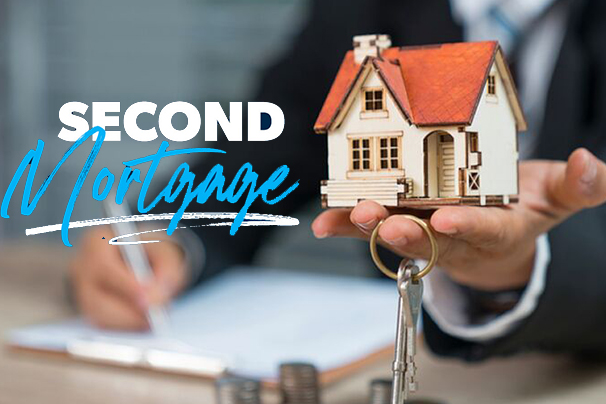Second-home purchase or refinancing decisions are significantly affected by prevailing mortgage rates, impacting your financial situation. These rates generally are higher than those for primary residences, reflecting the increased risk associated with owning a second home. In this article, we will be providing comprehensive details on what this mortgage entails.

Firstly, second-home mortgage rates refer to the interest rates associated with financing a property other than your primary residence. However, rates for second homes vary as fixed, providing stability, or adjustable, changing with market conditions and influencing your mortgage choice. Monitoring mortgage rates is crucial when seeking a second home; it influences the overall cost and shapes your investment decisions significantly. Additionally, a lower interest rate secures significant savings over the loan’s lifespan, enhancing the long-term financial viability of the second home.
Eligibility Requirement For Second Home Mortgage Rates
When evaluating mortgage applications for a second home, various factors come into play, and while specific criteria can vary among lenders, The following elements are commonly considered by the best mortgage lenders:
Credit Score
A minimum credit score of at least 640 is often necessary to qualify for a second home mortgage. However, higher credit scores typically secure competitive rates and favorable loan terms, with variations among lenders and the types of loans offered.
Income Verification
Lenders demand income proof (pay stubs, W-2s, tax returns) to verify financial capability for covering additional costs of owning two properties.
Employment History
Mortgage providers assess your employment history to determine its stability and sufficiency in supporting your debt obligations. Other reliable income sources may also be taken into consideration.
Down Payment
Larger down payments are typically required for second-home purchases. Expect to make a down payment ranging from 10% to 20% of the home’s purchase price.
Debt-to-Income (DTI) Ratio
Lenders use your DTI ratio to gauge the proportion of your gross monthly income allocated to debt. A DTI below 43% is often sought by lenders for loan approval.
Reserves
Lenders might mandate having enough cash reserves to cover at least six months of second home mortgage payments in case of emergencies.
Additionally, depending on the location of your second home, the lender might stipulate the need for flood insurance. It’s crucial to be aware of and fulfill these requirements to facilitate a smoother approval process for your second home mortgage.
Advantages and Disadvantages of Second Home Mortgage Rates
Choosing a second home mortgage can be advantageous, especially for those eyeing a vacation home or property for short-term rentals.
However, it’s crucial to comprehend the nuances of this financing option before selecting a lender or committing to a loan. Here are the primary advantages and disadvantages associated with second home mortgages:
Advantages
Investment Opportunities
Second-home mortgages facilitate investment in vacation homes or short-term rental properties, providing potential for additional income and long-term value appreciation.
Personal Enjoyment
Owning a second home allows you to have a retreat for vacations or weekends, providing a personal space away from your primary residence.
Tax Benefits
Depending on your situation, you may be eligible for certain tax benefits, such as deducting mortgage interest and property taxes. Consulting with a tax professional is advisable to understand the specific advantages in your case.
Disadvantages of Second Home Mortgage Rates
Higher Costs
Second-home mortgages typically entail higher interest rates and larger down payments, resulting in a more expensive borrowing cost than primary residences.
Financial Commitment
Owning a second home requires a significant financial commitment, including maintenance costs, property taxes, and potential unforeseen expenses.
Market Volatility
Real estate markets are unpredictable, with second-home values susceptible to fluctuations. Economic downturns can impact property values, influencing your investment.
Limited Use
If you’re obtaining a second home for rental purposes, there may be limitations on personal use, impacting your ability to enjoy the property when you desire.
Before committing to a second home mortgage, carefully consider factors like financial goals, lifestyle, and risk tolerance. Seeking professional advice is crucial for making informed decisions.
Who Should Get a Second Home Mortgage Rate?
Acquiring a second home mortgage can be a beneficial avenue for obtaining a property designated for either vacationing or rental purposes. However, before fully committing to this financial endeavor, it is crucial to take several factors into account.
Begin by thoroughly assessing your financial situation to gauge the feasibility of taking on additional monthly payments. Beyond this, consider the broader financial landscape by factoring in associated costs such as insurance, property taxes, and maintenance expenses.
Furthermore, it is prudent to examine the current state of the housing market and evaluate the potential resale value of the property. This insight can provide valuable foresight into the overall investment.
Lastly, reflect on your intended use for the property—whether it is for personal enjoyment or as a strategic investment. This consideration holds significance in shaping your decision-making process.
By carefully evaluating these crucial aspects and seeking professional advice when needed, you empower yourself to make an informed decision regarding the suitability of a second home mortgage for your circumstances.
How To Get a Second Home Mortgage Rate
When applying for a second home mortgage, the process varies among financial institutions. However, a set of general steps can guide you through the procedure:
Calculate Affordability
Before embarking on the purchase of a second home, assess your budget. Consider potential maintenance costs, insurance, and other associated expenses to determine affordability.
Get Preapproved for a Mortgage
Seek preapproval for a mortgage to understand the amount for which you qualify. This not only aids in the search for a suitable second home loan but also enhances your ability to secure a property under contract.
Find the best Rate
Explore various lenders to identify the most favorable interest rates. Compare the closing costs associated with each loan option before arriving at a final decision.
Make an offer
After identifying a budget-friendly property, make an offer and start the financing process to secure your second home.
Apply for the Mortgage
Complete the application process by submitting all required documents. These may include income verification, credit score review, tax information, and other relevant details as requested by lenders during the approval stage.
Close on Your Loan
Following approval, sign all necessary documents to conclude the mortgage process and officially take ownership of your new home.
With these steps, tailored to the specific requirements of your chosen financial institution, can streamline the application process for a second home mortgage.

